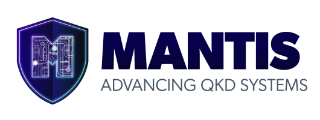The BEAVER project leverages the combined expertise of network operators, technology providers, and research institutions to develop an innovative digitization concept for low-voltage network operations. With an edge- and cloud-based automation platform, cost-effective sensors, and advanced flexibility management, it enables reliable and flexible network operation that meets the challenges of volatile, decentralized energy sources and fosters new business models in renewable energy.
more infoProjects
Below you will find an overview of the Fraunhofer Center Digital Energy's national and international projects.
-

The aim of MANTIS is to bring together an interdisciplinary team of experts to explore how photonic integration and quantum-based technologies—especially MDI-QKD—can revolutionize security and synchronization in gas control systems and critical infrastructure. Our objective is to develop innovative, scalable solutions that ensure secure and future-proof communication.
more info -

TwinEU will leverage a unique set of competences coming from grid and market operators, technology providers and research centres to create a concept of Pan-European digital twin based on the federation of local twins so to enable a reliable, resilient, and safe operation of the infrastructure while facilitating new business models that will accelerate the deployment of renewable energy sources in Europe.
more info -

The aim of QuGrids is to establish an interdisciplinary team of scientists to investigate how quantum-based technologies (quantum computing and quantum communication) can change the planning and operation of energy grids. Our goal is to create a network based in the state of Northrhine-Westpalatinate (NRW) that leads the research, development, dissemination and education of quantum-based energy grids.
more info -

The energy transition and increasing sector coupling pose major challenges for energy system research. In this context, digitization processes towards cyber-physical energy systems (CPES) facilitate change in many respects and have an equal impact on technical, social, and societal issues, but also on the research process itself. NFDI4Energy aims to establish a joint research infrastructure for FAIR data, models, and processes, whereby results are to be made reproducible and transparent.
more info -

Ensuring the secure operation of gas and electricity networks relies on reliable technologies and, particularly, the extensive expertise of the control center personnel. The increasing technological and systemic complexity of energy systems, as well as the heightened risk of cyber attacks, have led to a significant rise in the relevant process information that must be considered for safe network management. The goal of the "Beautiful" project, supported by the German Federal Ministry of Education and Research (BMBF), is to optimize the working conditions of critical infrastructure control center personnel.
more info -

The partners involved in the i-STENTORE project are working on developing technological and digital solutions for the hybrid operation of energy storage systems. Additionally, they are conducting investigations using demonstrators to explore the large-scale implementation of storage solutions across Europe.
more info -

The ODH@Jülich project focuses on the development of open, digital tools for the planning and operation of district-level energy systems. These tools aim to support stakeholders in municipalities, as well as the construction, housing, and energy sectors, in implementing the energy transition.
more info


